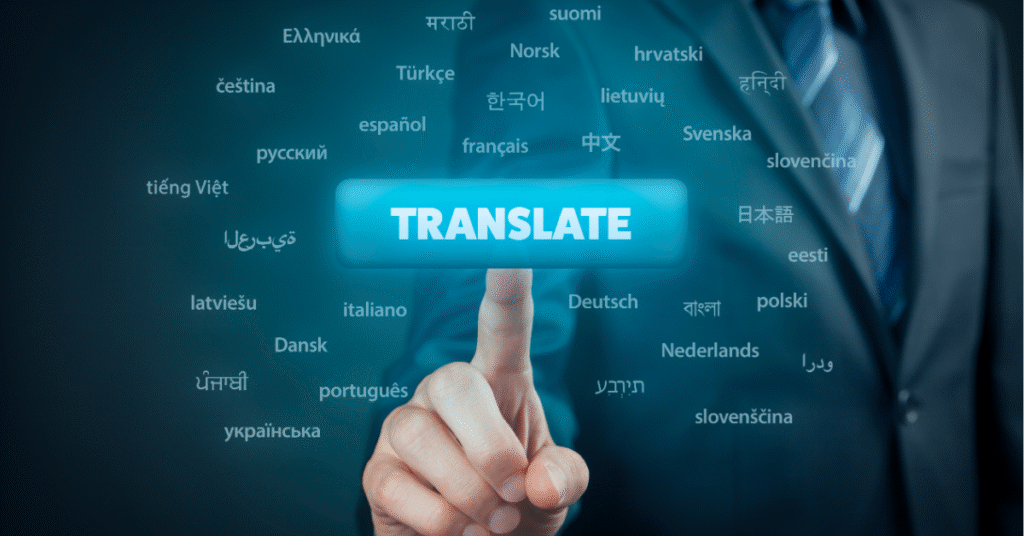Table of Contents
Translation plays a crucial role in connecting people, cultures, and businesses across the globe. From literature to legal contracts, every industry requires a specific translation approach to ensure accuracy, tone, and meaning are preserved. In this guide, we will explore the different types of translation, their importance, and how to choose the right one for your needs.
Main Types of Translation

When it comes to translation, no single method works for every situation. Each project requires a unique approach depending on context, purpose, and audience. The main types of translation include:
- Legal Document Translation – Used for contracts, agreements, immigration papers, and court documents. Accuracy and confidentiality are critical.
- Technical Translation – Common in fields such as engineering, IT, and medicine where industry-specific terminology must be precise.
- General Translation – Everyday documents, articles, and non-specialized texts that require clarity and fluency.
- Literary Translation – Focused on novels, poetry, and creative works where style and cultural nuance are as important as meaning.
- Audiovisual Translation – Includes subtitles, dubbing, and voiceovers for movies, TV, and digital media.
Translation Approaches
There are several translation approaches depending on the text and purpose:
- Literal Translation – Word-for-word, often used for legal or technical documents where accuracy is crucial.
- Free Translation – Focuses on overall meaning rather than exact wording.
- Sense-for-Sense Translation – Strikes a balance between literal accuracy and readability.
- Transcreation in Translation – Adapts marketing or creative content to resonate with a new culture.
- Localization in Translation – Goes beyond words by adapting content, measurements, and formats for specific regions.
Human vs Machine Translation
- Human Translation – Offers cultural context, nuance, and accuracy. Ideal for business, legal, and creative projects.
- Machine Translation – Fast and cost-effective but lacks context and can misinterpret cultural subtleties.
- Hybrid Approach – Combining machine speed with human editing for balance between efficiency and quality.
Industry-Specific Translation Services

Industries have unique requirements, and specialized translation services are essential for accuracy.
- Healthcare Translation – For patient records, prescriptions, and medical research.
- Business Translation – Corporate documents, marketing campaigns, and financial reports.
- Website & App Localization – Adapting content for global audiences by considering culture, currency, and language nuances.
Translation Challenges and Best Practices
Professional translators face several challenges including barriers of translation, cultural differences, and industry-specific terminology. To overcome these, following a translation style guide, using glossaries, and applying quality control measures are key.
Some of the biggest difficulties in translation include:
- Preserving tone and context.
- Handling idioms and cultural references.
- Adapting to fast-changing industries like technology and law.
How to Choose the Right Translation Type
Choosing the right translation depends on your goals. For businesses entering new markets, localization vs translation is often the deciding factor—translation ensures understanding, while localization ensures cultural relevance.
If you need contracts or compliance documents, legal translation services are the best choice. For creative works, literary translation or transcreation provides authenticity.
Why Translation Matters for Business
High-quality translation builds trust, strengthens global reach, and prevents costly miscommunications. In a connected world, professional translation is not optional—it’s a necessity for success.
Related: Sample Translations
FAQs About Translation
- Why is accuracy important in translation?
- Accurate translation ensures meaning, tone, and intent are preserved. Errors can lead to misunderstandings in legal, medical, and business contexts.
- What are the qualities of a good translator?
- Strong language skills, cultural knowledge, subject expertise, and attention to detail are key qualities of an interpreter or translator.
- What is the difference between translation and localization?
- Translation converts text, while localization adapts it to fit cultural and regional norms.
- What are the three most important skills of an interpreter?
- Listening, cultural awareness, and the ability to convey meaning accurately in real time.
Need Expert Translation Services?
At Translation Excellence, we deliver accurate, industry-specific, and professional translation solutions including legal, technical, and business translations. Our team ensures precision, cultural accuracy, and timely delivery to support your global communication needs.
👉 Contact us today to discuss your project.
Related:


